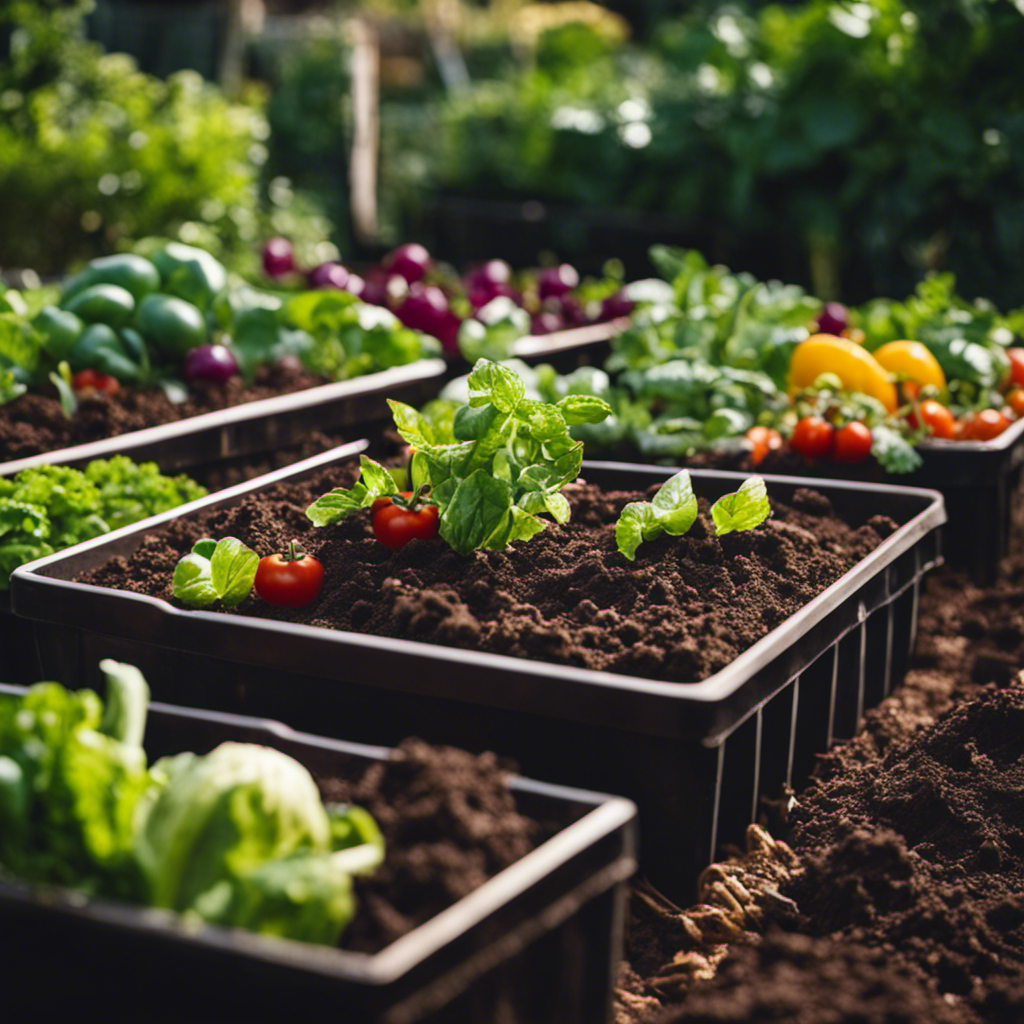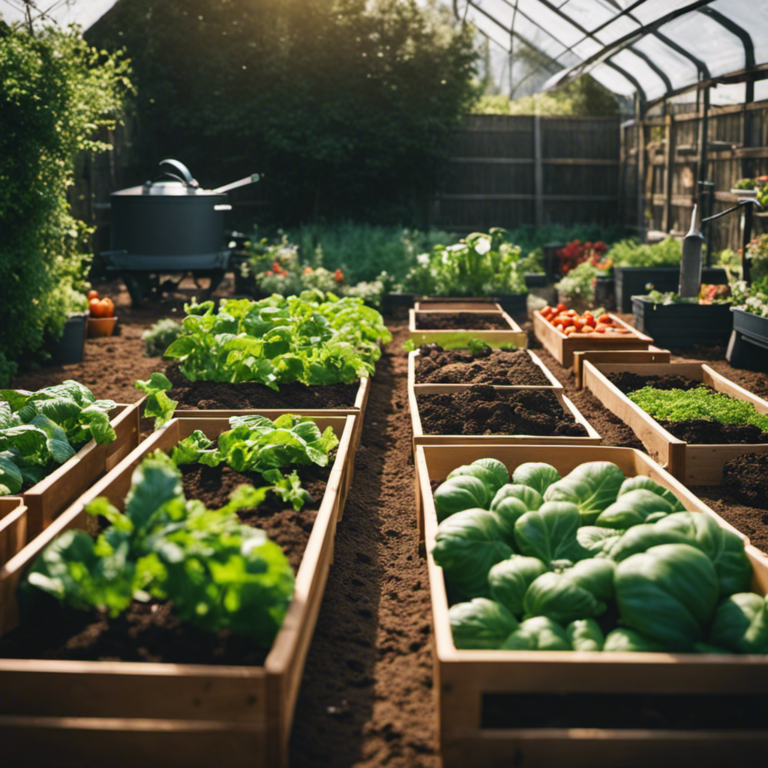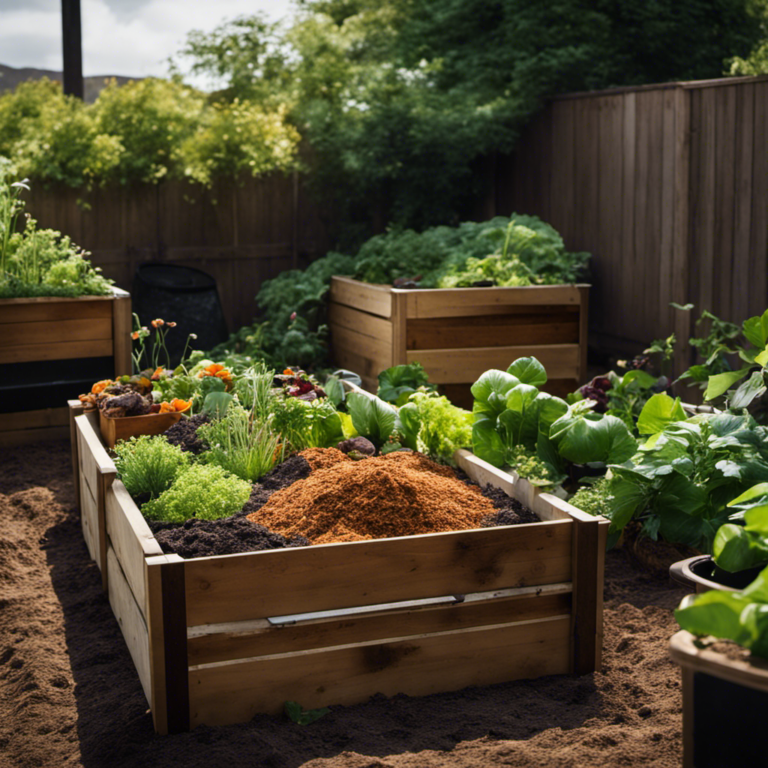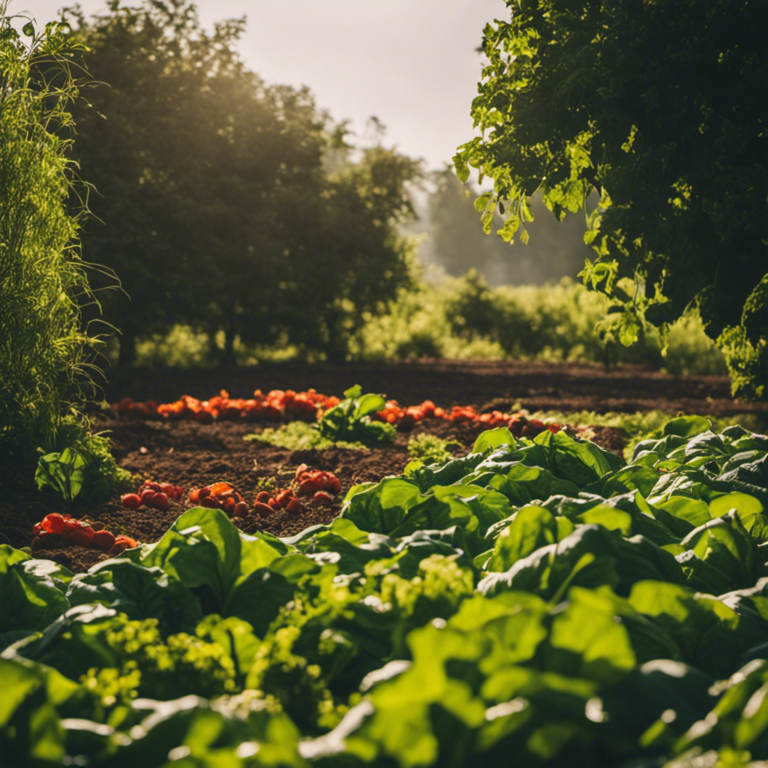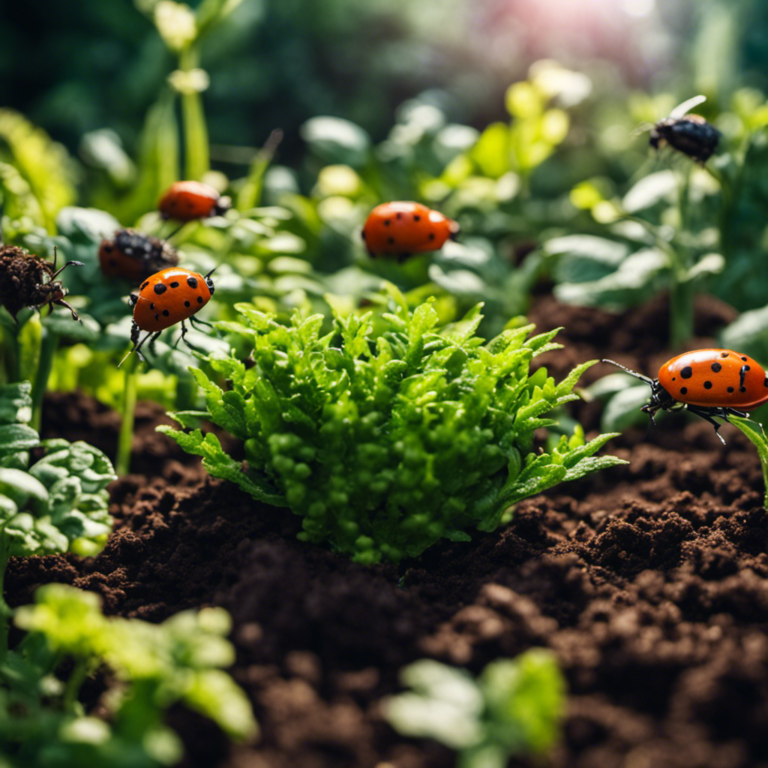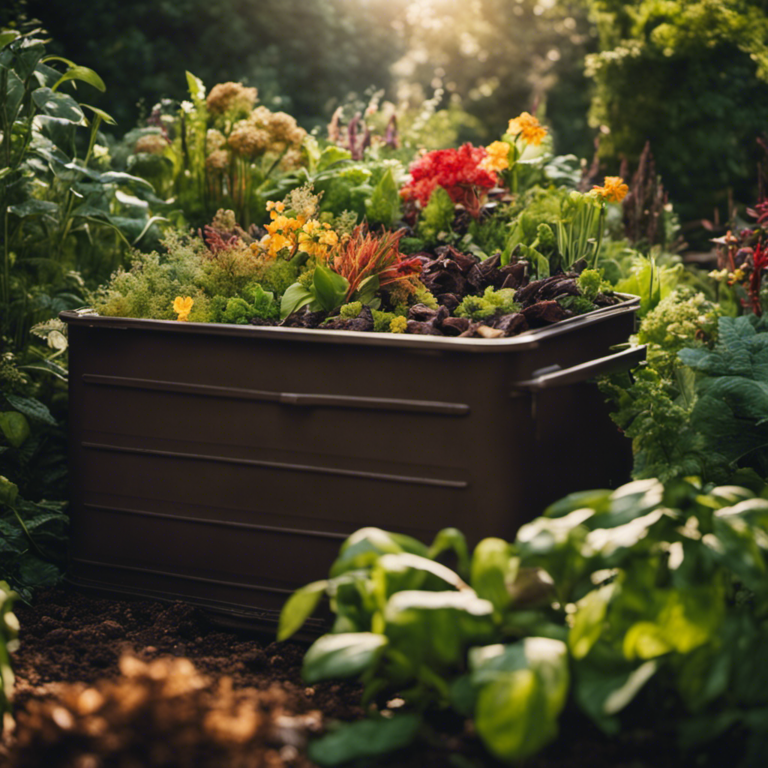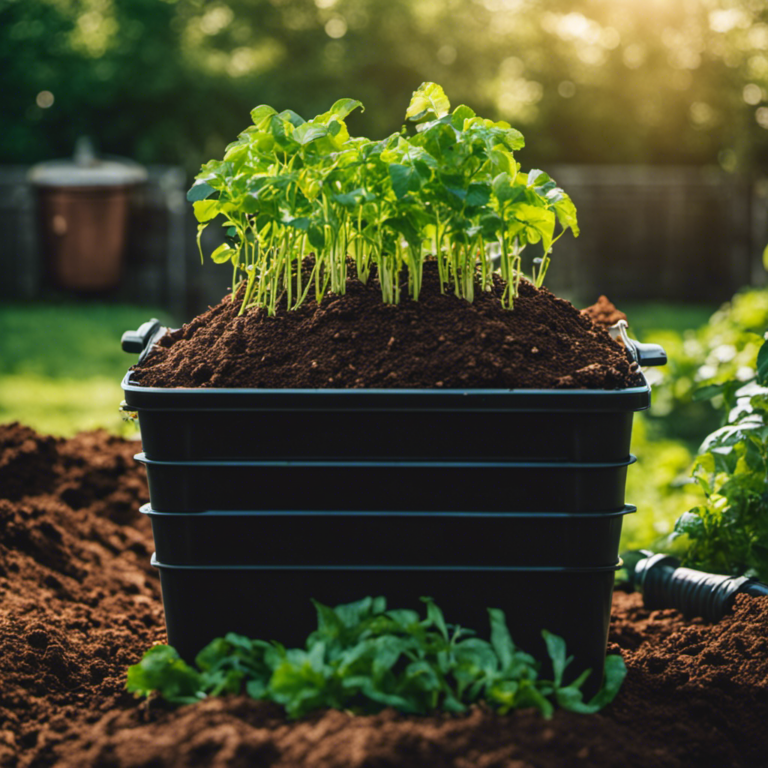As someone who loves gardening, I’ve discovered the key to growing thriving organic veggies: efficient composting. It’s like giving your plants a nutrient-packed superfood, fueling their growth and health.
In this article, I’ll explain the science behind why efficient composting is beneficial for your garden. We’ll explore different composting systems, essential components, and helpful troubleshooting tips. By understanding these technical aspects, you’ll be able to provide your veggies with the best care possible.
Get ready to see the amazing power of efficient composting in transforming your garden into a flourishing oasis.
Key Takeaways
Efficient composting plays a vital role in the health and abundance of organic vegetables. By using different composting systems and ensuring the presence of essential components, we can create a nutrient-rich environment that fosters the growth of our plants.
Following tips for successful composting and troubleshooting common issues, we can overcome any challenges that may arise during the process. This allows us to optimize the composting process and ensure its effectiveness.
The power of efficient composting is evident in the healthy and abundant growth of our vegetables. By providing them with a nutrient-rich environment, we can enjoy a bountiful harvest of organic produce.
Benefits of Efficient Composting
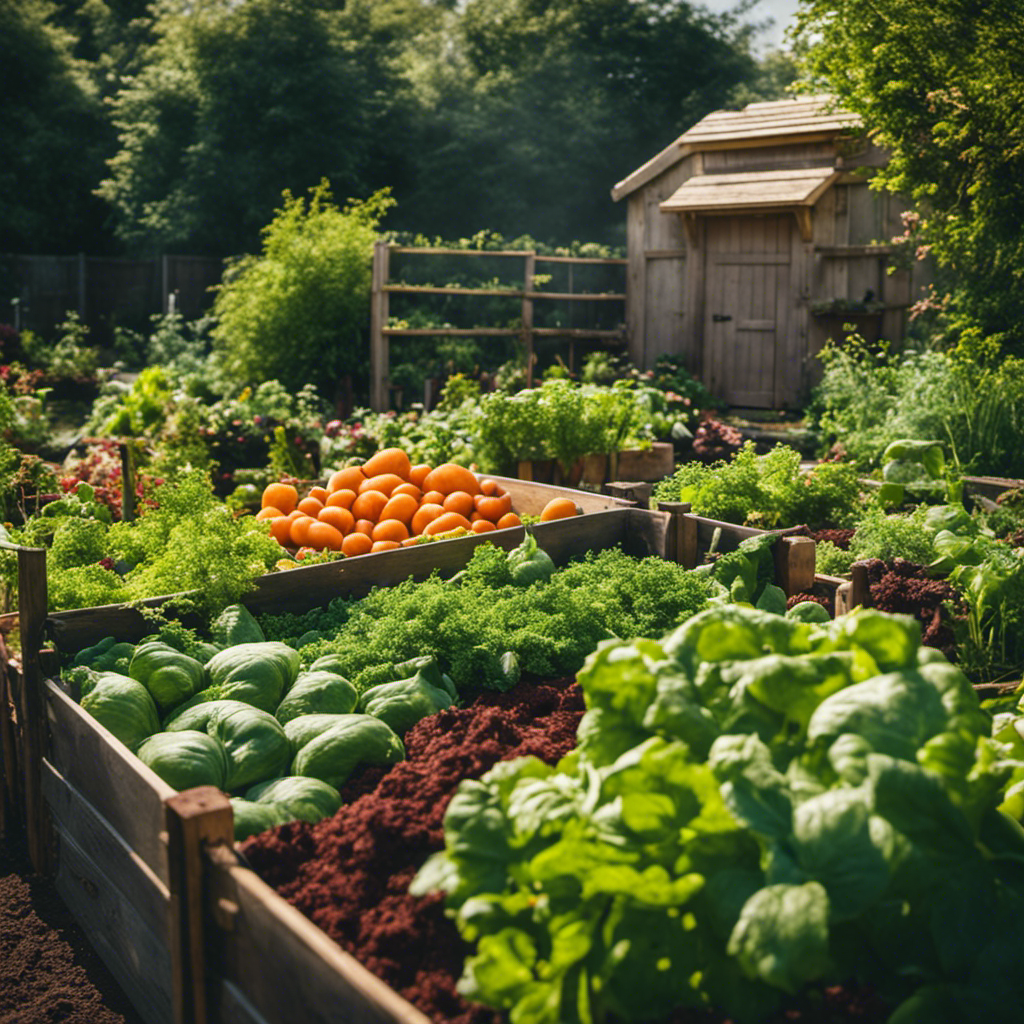
Efficient composting has a significant advantage for your organic veggies by providing healthier soil. Efficient composting involves breaking down organic waste into nutrient-rich compost in a timely and effective manner. This process greatly improves the quality of the soil in your vegetable garden.
There are several benefits to efficient composting. Firstly, it enriches the soil by adding essential nutrients like nitrogen, phosphorus, and potassium. These nutrients are crucial for the healthy growth of plants and can result in higher yields of organic vegetables.
Secondly, efficient composting improves the soil structure, promoting better drainage and aeration. This allows the roots of your veggies to access water, oxygen, and other nutrients more easily, resulting in stronger and more resilient plants.
Another advantage of efficient composting is its ability to retain moisture in the soil. The organic matter in compost acts like a sponge, holding water and preventing it from evaporating too quickly. This is especially beneficial in areas with limited water resources or during dry spells.
Types of Efficient Composting Systems
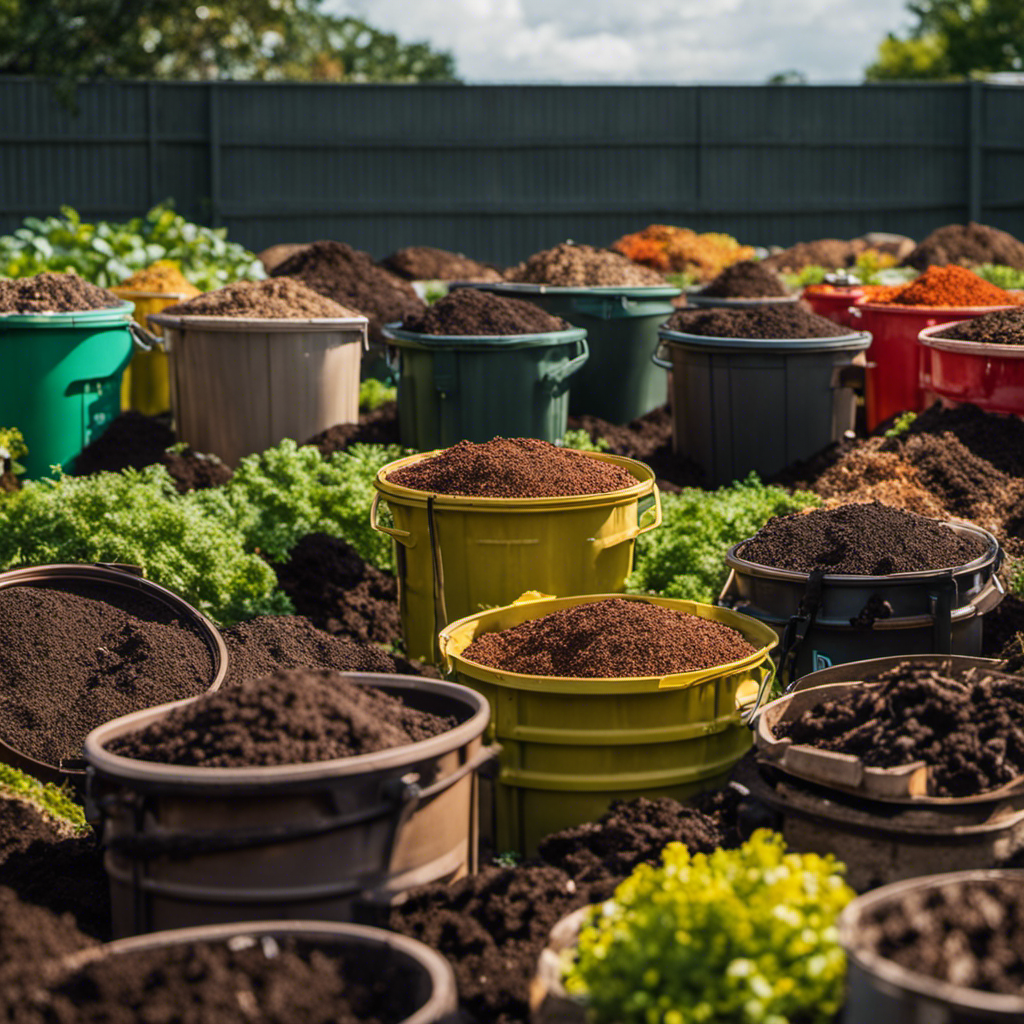
Types of Efficient Composting Systems
To understand the different types of efficient composting systems, let’s take a closer look at two main options: aerobic composting and vermicomposting.
-
Aerobic Composting:
- This system relies on oxygen to break down organic matter effectively.
- Regular turning or mixing of the compost pile is necessary to ensure proper aeration.
- The optimal temperature range for aerobic composting is between 120°F and 160°F.
-
Vermicomposting:
- In this system, worms play a crucial role in decomposing organic waste.
- The worms consume the organic matter and produce nutrient-rich castings, also known as vermicast.
- Vermicomposting can be done both indoors and outdoors, making it suitable for small-scale and urban gardening.
Both aerobic composting and vermicomposting offer unique advantages. Aerobic composting generates heat, which helps eliminate pathogens and weed seeds. On the other hand, vermicomposting produces nutrient-rich compost that enhances soil fertility.
By utilizing these efficient composting systems, you can transform kitchen scraps and garden waste into valuable compost that nourishes your organic veggies.
Not only does this practice reduce landfill waste, but it also improves soil structure, water retention, and nutrient availability.
Essential Components for Efficient Composting
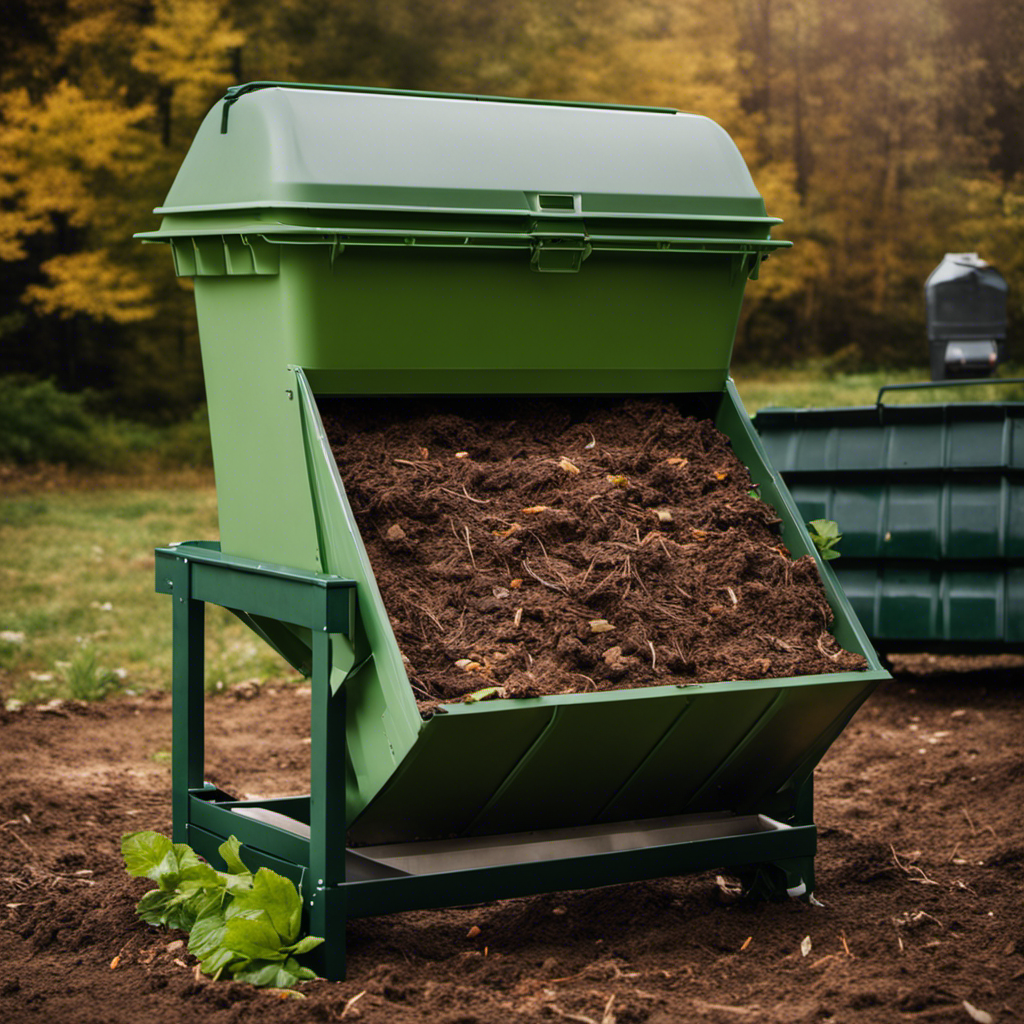
Efficient Components for Successful Composting
Composting is a natural process that transforms organic matter into nutrient-rich soil. To ensure efficient composting for my organic veggies, I rely on specific components. These components play a vital role in creating the ideal conditions for the composting process.
One essential component is achieving the right balance between green and brown materials. Green materials, rich in nitrogen, and brown materials, high in carbon, work together to maintain the optimal moisture and temperature levels necessary for composting.
Air circulation is another critical component. Oxygen is essential for the decomposition of organic matter. Without proper airflow, the composting process can slow down or become anaerobic, resulting in unpleasant odors. Regularly turning the compost helps ensure that oxygen reaches all parts of the pile.
Maintaining the right moisture level is also crucial for efficient composting. The compost pile should be moist, similar to a wrung-out sponge. Excess moisture can lead to anaerobic conditions, while insufficient moisture can slow down the decomposition process. Finding the right balance promotes the growth of beneficial microorganisms that break down the organic matter.
Additionally, techniques like layering and shredding can further enhance the efficiency of the composting process. Layering different materials and shredding them into smaller pieces increase the surface area, allowing for faster decomposition.
By incorporating these essential components into my composting process, I can ensure that my organic veggies receive the nutrient-rich soil they need to thrive.
[Custom Quote]: ‘Efficient composting requires the right mix of materials and proper maintenance to transform organic matter into nature’s best fertilizer.’
Tips for Successful Composting
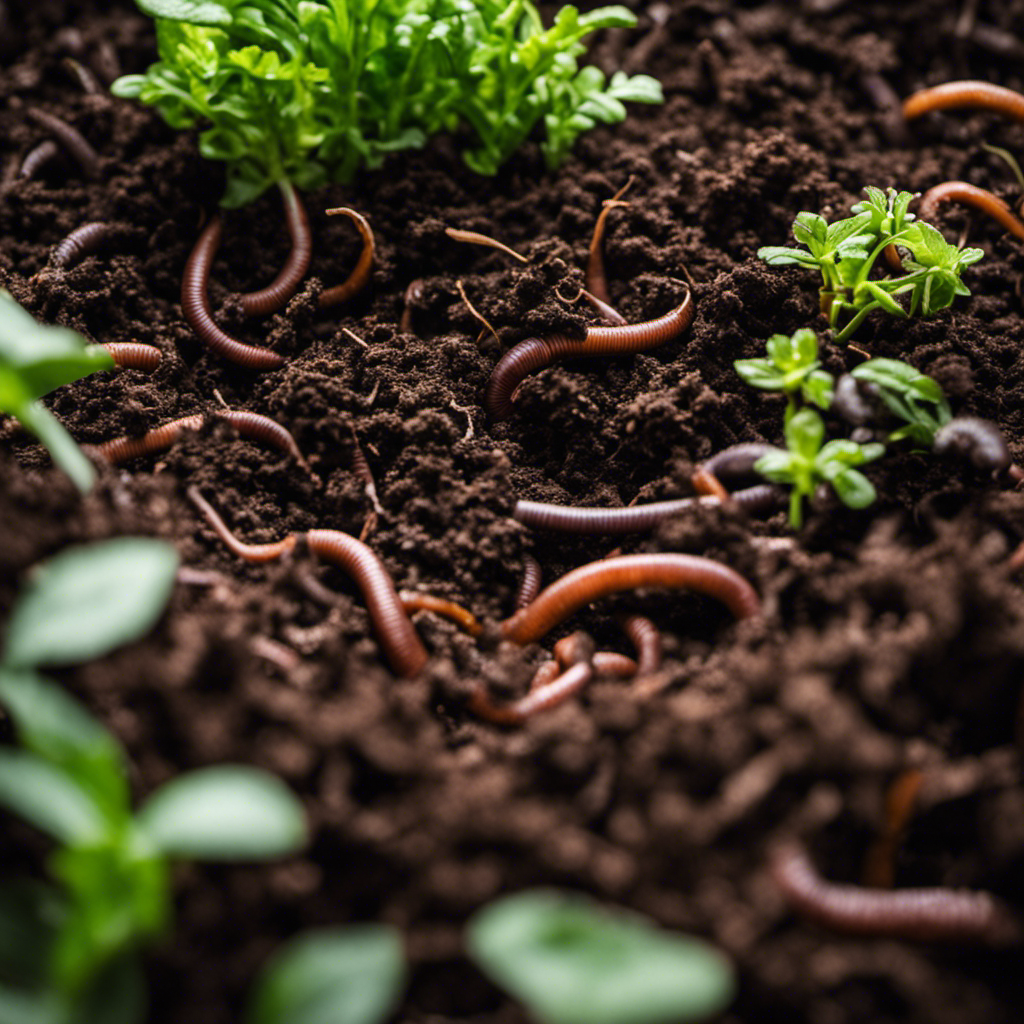
Here are five key tips for successful composting:
-
Choose the right location:
- Find a suitable spot in your backyard that gets enough sunlight and is easy to access for turning and monitoring the compost pile.
- Make sure the area has good drainage to prevent waterlogging, which can hinder the composting process.
-
Balance the ingredients:
- Maintain a proper balance between carbon-rich materials (like dried leaves, straw, or shredded paper) and nitrogen-rich materials (such as kitchen scraps or fresh grass clippings).
- Aim for a carbon-to-nitrogen ratio of approximately 30:1 to create an ideal environment for decomposition.
-
Regularly turn the pile:
- Use a garden fork or compost aerator to turn the compost pile on a regular basis. This introduces oxygen and helps distribute heat evenly, speeding up the decomposition process.
-
Monitor moisture levels:
- Keep the compost pile moist but not overly wet. Aim for a moisture content similar to that of a damp sponge, around 50-60%.
- If the pile becomes too dry, add water. If it becomes too wet, add dry carbon-rich materials to absorb the excess moisture.
-
Avoid common composting mistakes:
- Don’t include meat, dairy products, or oily substances in your compost pile, as they can attract pests and slow down decomposition.
- Avoid adding weed seeds or plants that may sprout in the compost.
- Make sure to regularly turn and monitor the compost pile to prevent slow or incomplete decomposition.
Troubleshooting Common Composting Issues
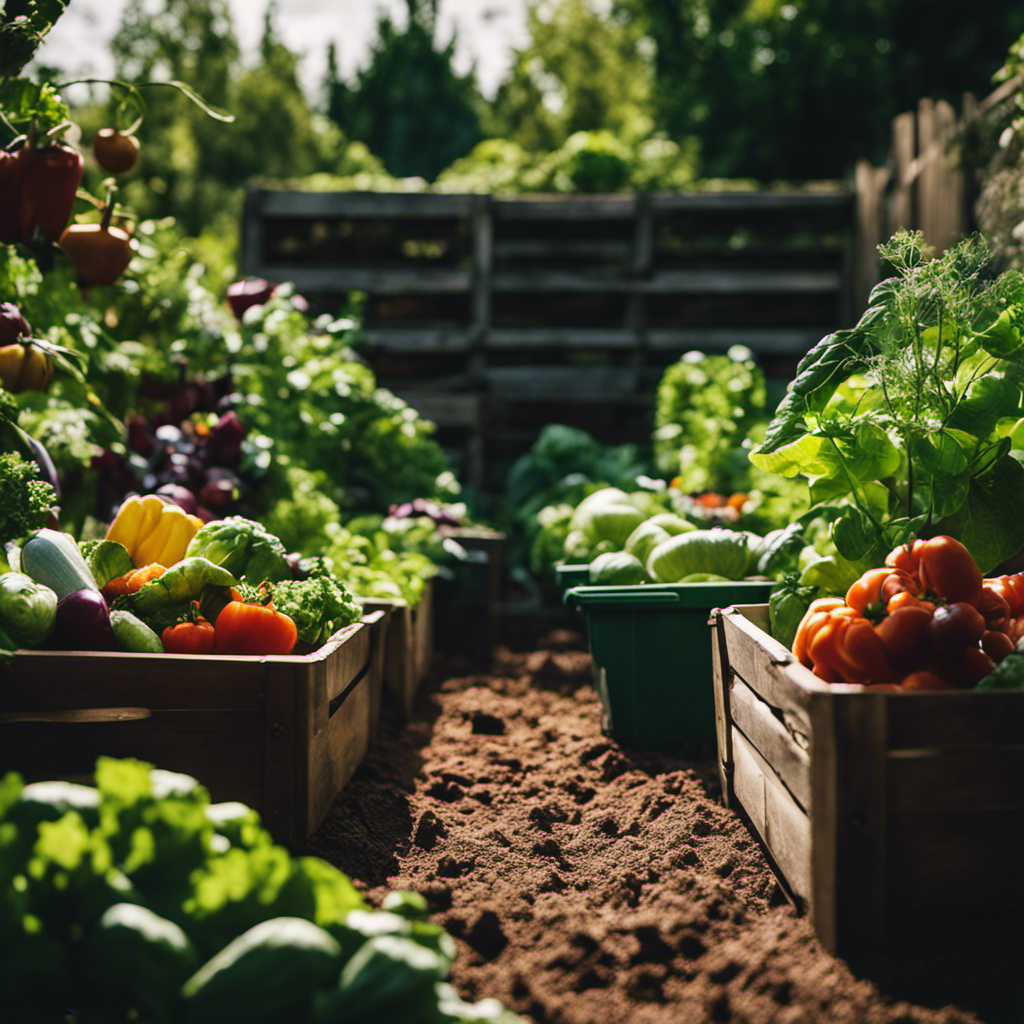
What are some common issues that can occur during composting and how can they be resolved?
Composting is a great way to transform organic waste into nutrient-rich compost for your garden. However, there are certain challenges that you may come across during the process.
One common issue is a foul odor emanating from the compost pile. This can be caused by an imbalance in the composting materials. To fix this problem, make sure to maintain a proper ratio of green (nitrogen-rich) and brown (carbon-rich) materials.
Another problem that may arise is the compost pile not heating up. This could be due to insufficient moisture or lack of aeration. To address this, ensure that the compost pile is damp but not overly wet, and regularly turn it to promote oxygen flow.
Additionally, pests such as rodents and flies may be attracted to the compost pile. To prevent this, avoid adding meat, dairy, or oily food scraps, and cover the pile with a layer of straw or leaves.
Conclusion
Efficient composting plays a crucial role in the thriving of organic veggies. By utilizing various composting systems and ensuring the presence of essential components, we can create a nutrient-rich environment for our plants.
Following the tips for successful composting and troubleshooting common issues, we can overcome any challenges that may arise.
With the power of efficient composting, our vegetables will grow healthily and abundantly, providing us with a bountiful harvest.
